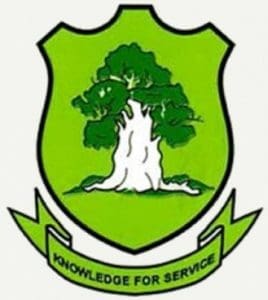President John Dramani Mahama has awarded the University for Development Studies football team GH¢500,000 after they defeated Brazil to win the World University Football Games, using the victory to announce broader plans for sports development infrastructure across Ghana.
The President received the championship team at the Jubilee House on Tuesday, October 7, 2025, praising their performance as evidence that Ghanaian youth can compete at the highest levels when provided with proper support and opportunity.
“This victory is not only for UDS,” Mahama said. “It is proof that Ghanaian youth can compete and excel anywhere in the world when given the right opportunity and support.”
The half million cedi reward will be presented to Vice Chancellor Professor Seidu Al-Hassan for distribution to the team, though details about how the funds will be allocated among players, coaches, and support staff were not immediately disclosed.
Beyond the financial reward, Mahama used the occasion to unveil plans for a School Sports Authority with dedicated budget allocation to manage competitions from basic through tertiary education levels. The proposed authority would represent a significant expansion of government involvement in youth sports development, though implementation timelines and budget figures were not provided.
“This will help us identify and develop talents early and channel them into the national teams,” the President explained, suggesting the current system fails to adequately scout and nurture young athletes before they reach senior levels.
Mahama also announced intentions to build a standard sports stadium in every region, a promise that would require substantial capital investment and sustained political will to execute across all sixteen regions. Ghana currently has significant disparities in sports infrastructure quality, with some regions lacking facilities that meet international standards.
The President framed sports development as integral to his RESET agenda, which he said focuses on promoting unity, inclusion, and job creation through youth empowerment. Whether sports infrastructure delivers meaningful job creation beyond construction phase employment remains a question critics have raised about similar initiatives in other countries.
Mahama urged the victorious players to view their championship as a beginning rather than an endpoint, advising them to maintain discipline and pursue excellence both athletically and academically.
“Let this victory be the foundation, not the finish line,” he said. “Continue to train with humility, discipline, and ambition.”
Professor Seidu Al-Hassan thanked the President for his support and revealed that the team’s training approach was inspired by Mahama’s “24 hour economy” policy concept, which they adapted into what he described as a “24 hour training plan.” The connection between the economic policy and the sports training methodology was not elaborated upon in detail.
The Vice Chancellor also expressed appreciation for the passage of the University for Development Studies Act, 2025 (Act 1143), which presumably grants the institution enhanced autonomy or additional powers, and appealed for continued investment in both sports and academic infrastructure.
UDS’s victory over Brazil at the World University Football Games represents a significant upset given Brazil’s traditional dominance in football at virtually every competitive level. University football has historically received less attention and funding than senior national teams in Ghana, making the achievement particularly noteworthy.
The championship comes at a time when Ghana’s senior national team, the Black Stars, has struggled to replicate past successes, failing to qualify for the last two World Cups. Some football observers suggest that investing in youth and university level programs might produce better long term results than the current focus on senior team performance.
However, translating university level success into sustainable national team improvement requires systematic talent development pathways that connect student athletes to professional opportunities. Many talented university players in Ghana never make the transition to professional football due to lack of scouting networks and clear progression routes.
The GH¢500,000 reward, while substantial, pales in comparison to bonuses that senior national teams receive for major tournament qualification or victories. The Black Stars received significantly larger financial packages for qualifying for World Cups in 2006, 2010, and 2014, though those rewards often sparked controversy over distribution and fulfillment.
Whether Mahama’s proposed School Sports Authority and regional stadium construction materialize will depend on budget allocations in subsequent fiscal years and the government’s ability to prioritize sports infrastructure amid competing demands for education, healthcare, and economic development spending.
For now, the UDS team’s victory provides the government with a feel good story and justification for increased sports investment, while the players themselves gain financial reward and national recognition that could open doors to professional opportunities domestically or abroad.
Source: newsghana.com.gh











